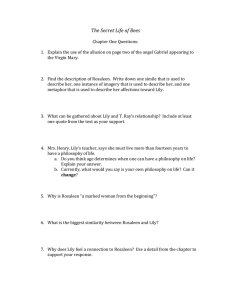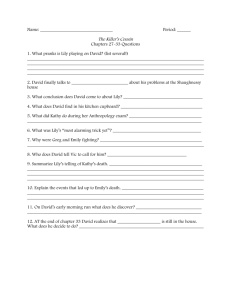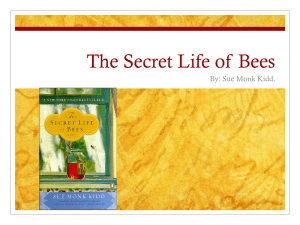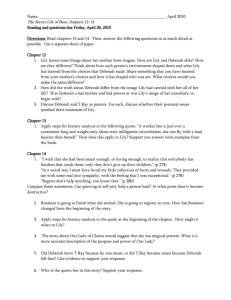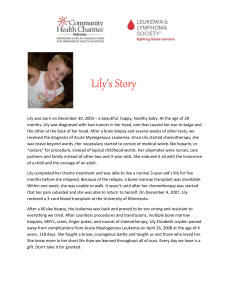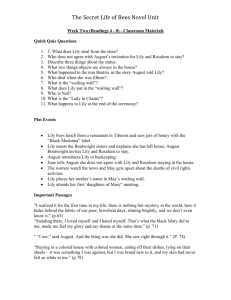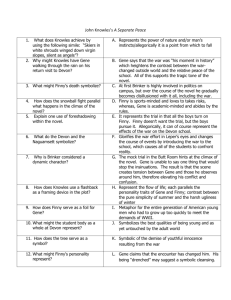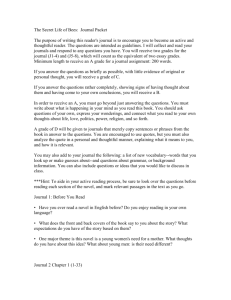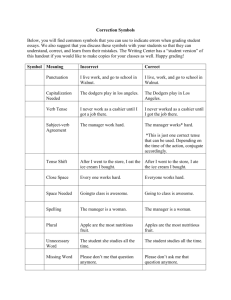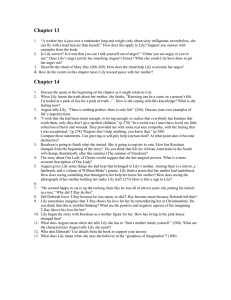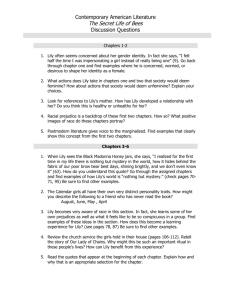A Separate Peace and The Secret Life of Bees
advertisement
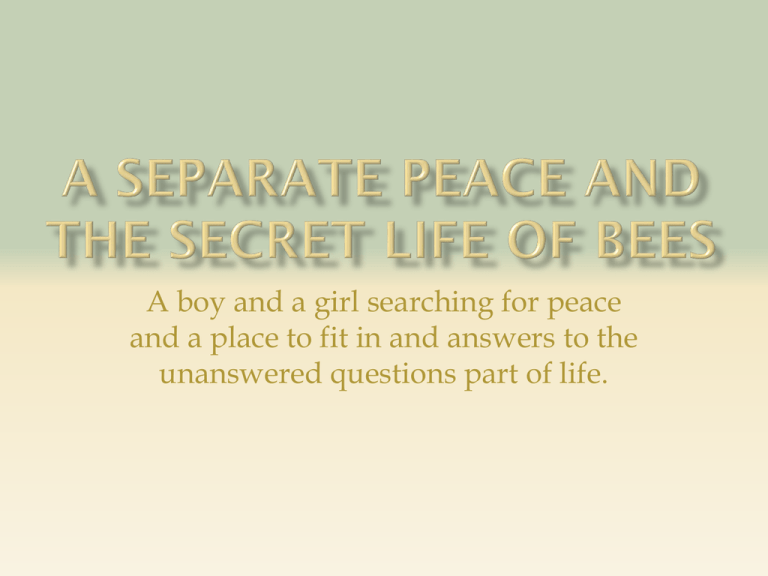
A boy and a girl searching for peace and a place to fit in and answers to the unanswered questions part of life. Gene Forrester returns to visit the campus of Devon School, an all-boys preparatory school in rural New Hampshire, which he attended fifteen years prior. Two locations bear a mysterious significance to him, the first being a marble staircase inside a classroom building. The second is beneath a tree growing near Devon River. As Gene remembers the past, reader’s learn of his relationship with his best friend, Finny, how the relationship failed and what Gene learned during that tough year at Devon. Lily Owens does not have the best home life. The only person she really loves is her black housekeeper, Rosaleen. To protect herself and Rosaleen Lily makes the decision that she must run away and takes Rosaleen with her. As Lily tries to find a place for herself in society, she learns the importance of equality and truth. Both stories are about a young person trying to find his/her place in the world and struggling with the stereotypes created by society. Both stories take place during a war A Separate Peace- WWII The Secret Life of Bees- Vietnam War/Civil Rights Movement What issues come about when a country goes to war? In both stories the main character must dig him/herself out of the situation they have put themselves in. This means coming to terms with their faults. Both main character’s lack the self-esteem to believe in themselves. Envy often overcomes each character to the point where rationale though no longer exists. Plot Exposition Rising Action Climax Falling Action Resolution Conflict Voice Theme Character development Antagonist Protagonist Many women were torn between desire to start a family and the fact that they had liked working during WWII, although women were encouraged by many to return to the kitchen Women were encouraged to be “busy housewives”—perfect at everything Many women went to college to find husbands and dropped out when they did Women expected to marry young, have children early, and support their husbands’ careers Working women considered to be a menace Also reinforced by Benjamin Spock in Baby and Child Care, in which he argued that women working outside the home would jeopardize their children’s mental and emotional health Men expected to go to school and then find jobs to support their families They viewed themselves as the “primary breadwinners” and wanted to have their jobs waiting for them when they returned from the war Men wanted things to go back to the way they were before the war Labor Force male/female: 5/2 In 1956, 35 percent of all adult women were members of the labor force, and nearly a quarter of all married women were working. Women’s pay in the 1960’s was 60 percent of the male rate. Though equal pay legislation passed in 1963, that did not solve the problem of low pay in jobs that were classed as female. "Women who failed to conform to the June Cleaver/Margaret Anderson role of housewife and mother were severely criticized. A 1947 bestselling book, The Modern Woman, called feminism a "deep illness," labeled the idea of an independent woman a "contradiction in terms," and explained that women who wanted equal pay and equal educational opportunities were engaged in a "ritualistic castration" of men." The era’s in which these novels were written reflect the social stigma put on men and women during that time period. As you read, think about… Whether Gene’s struggles would have been different had the social setting allowed him more freedom of expression. Whether Lily would have found a place in society had she not had the social stigma to deal with. What social stigma’s exist in American society today.
